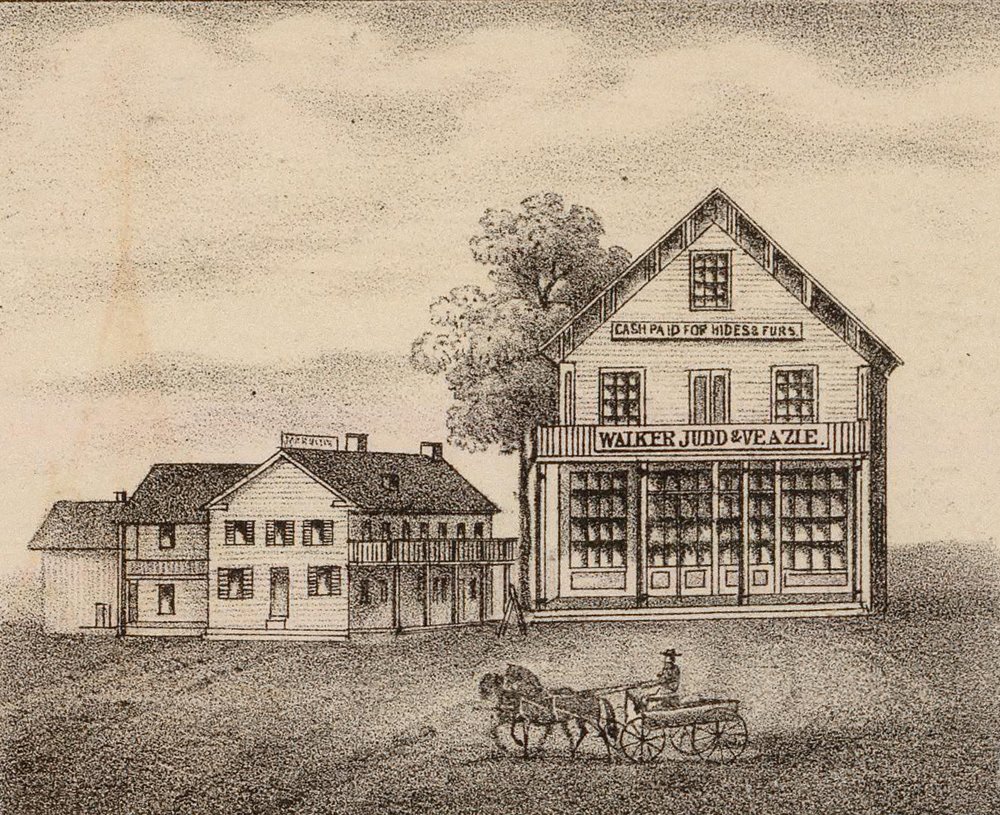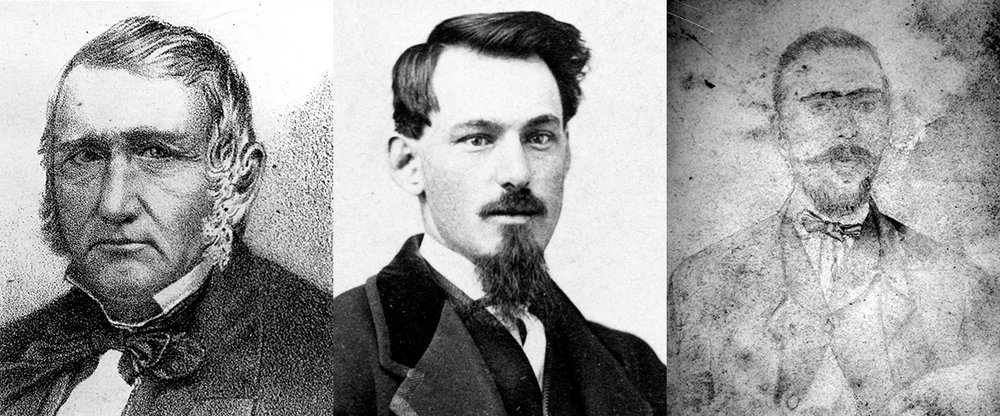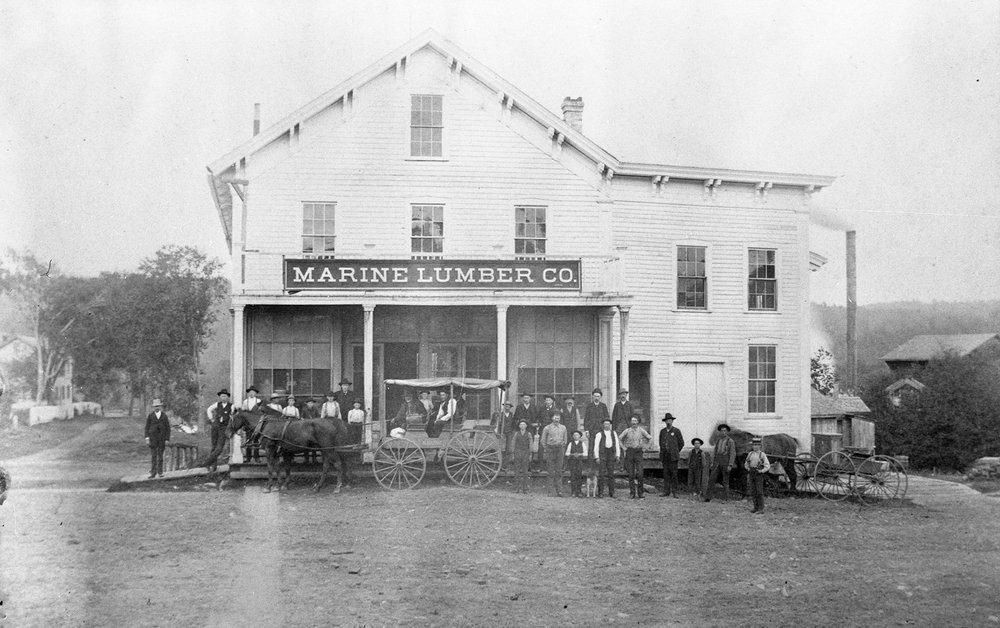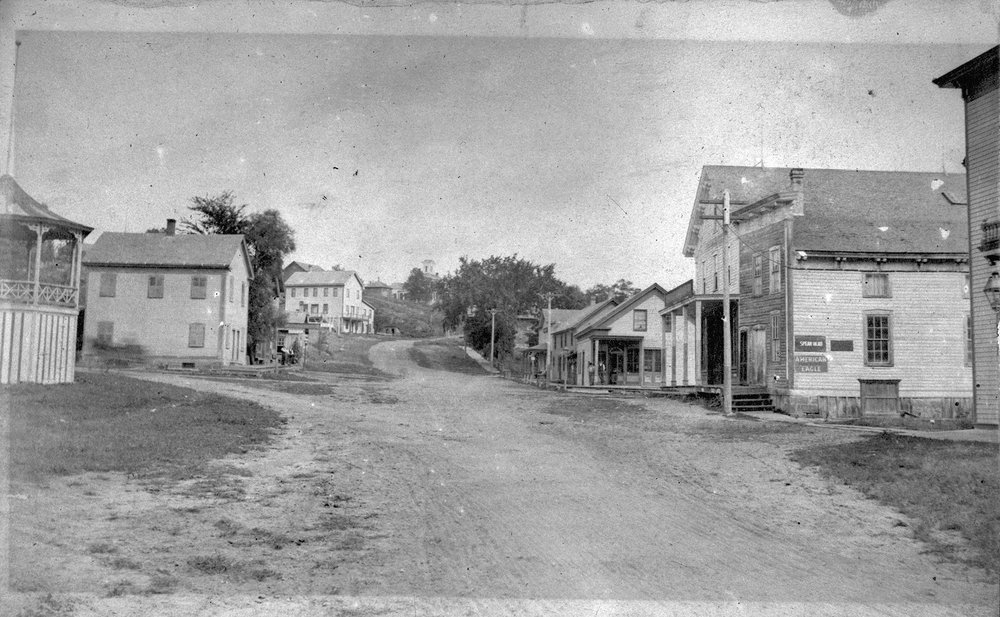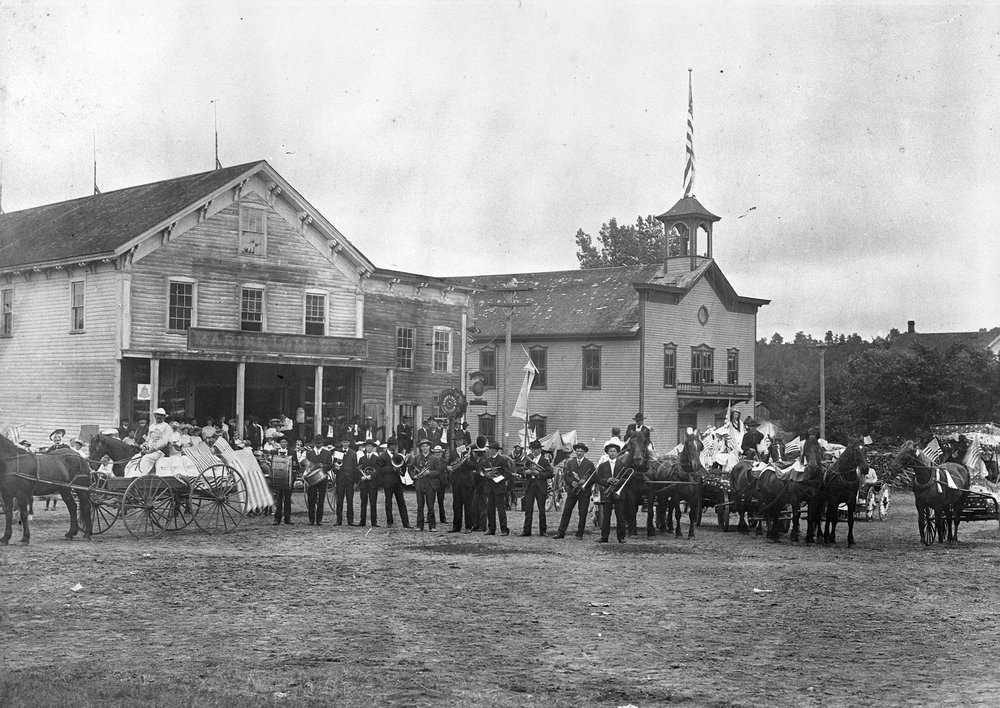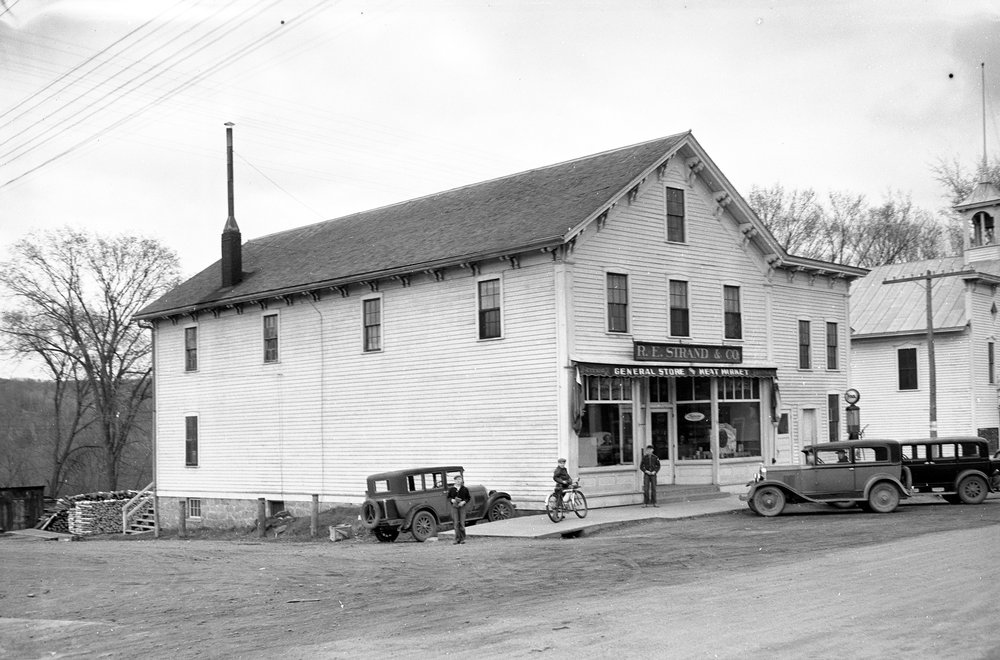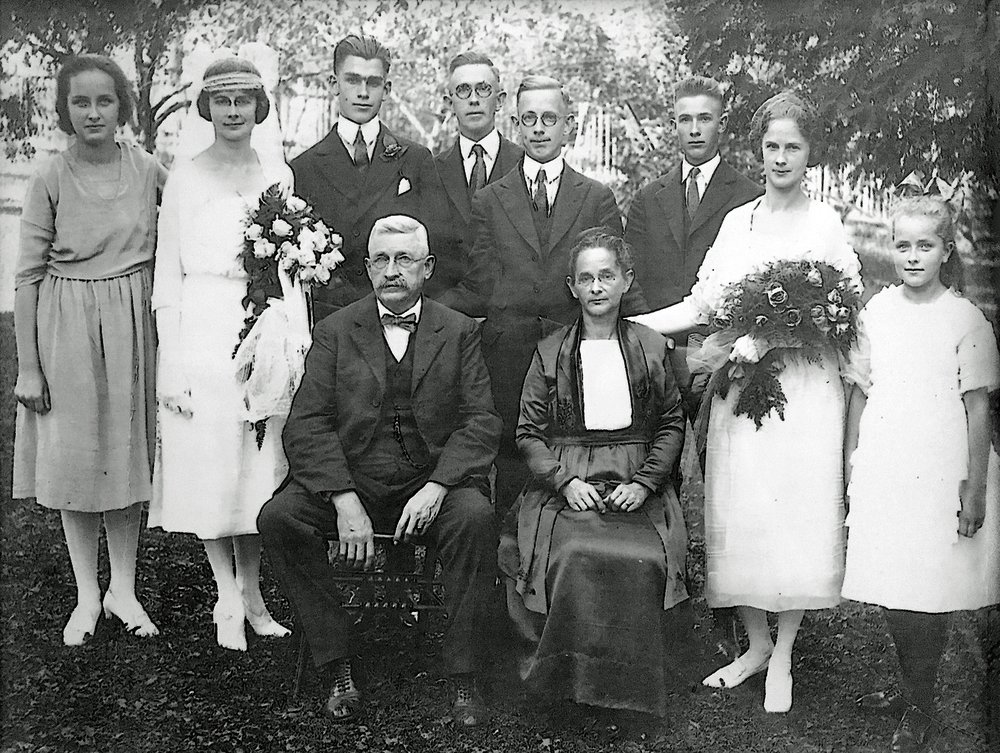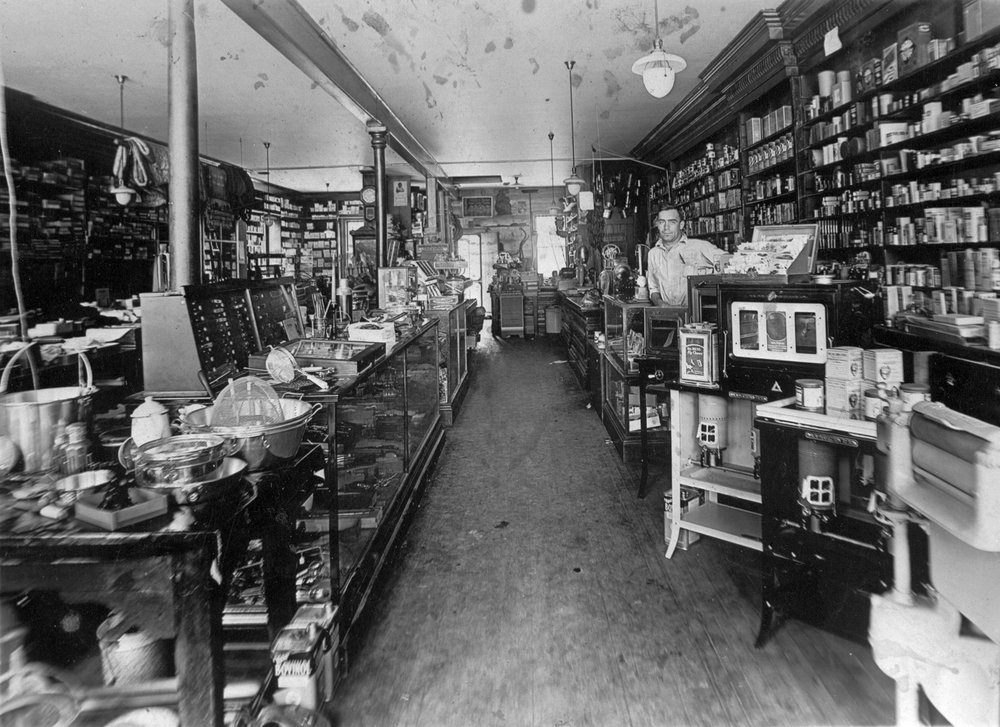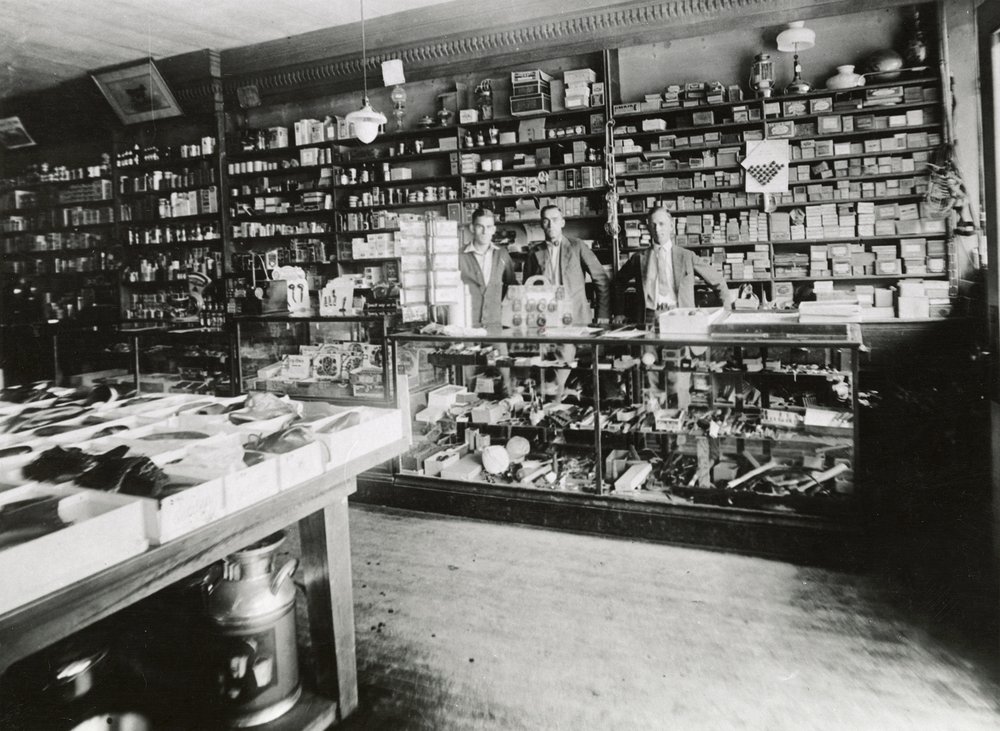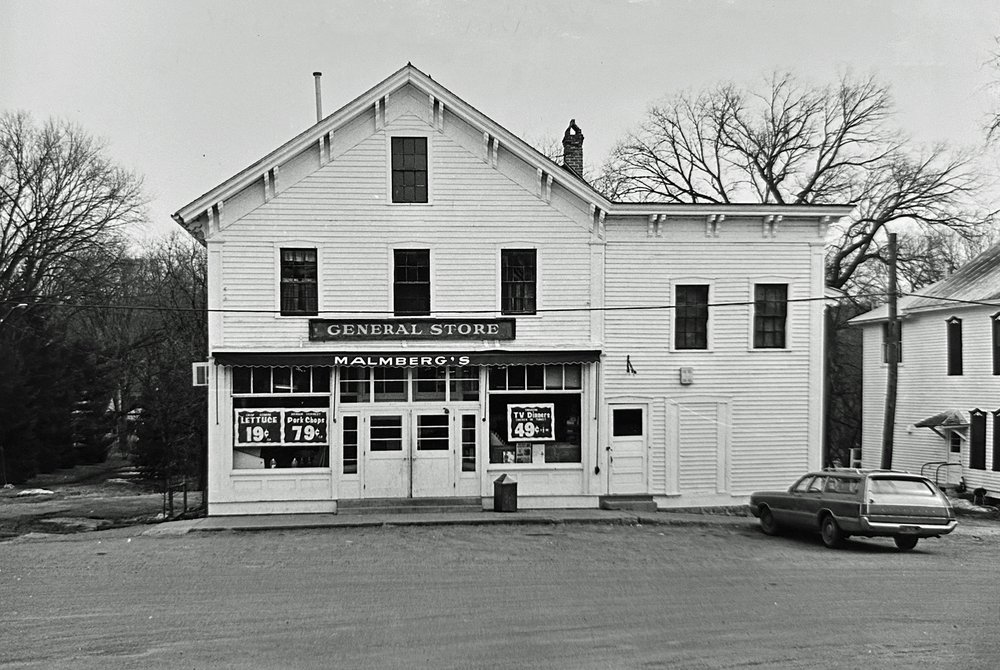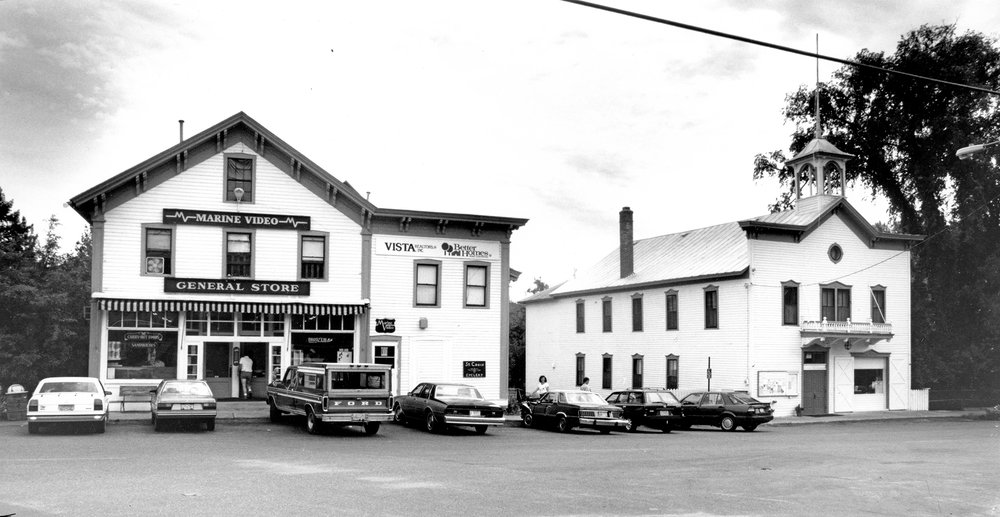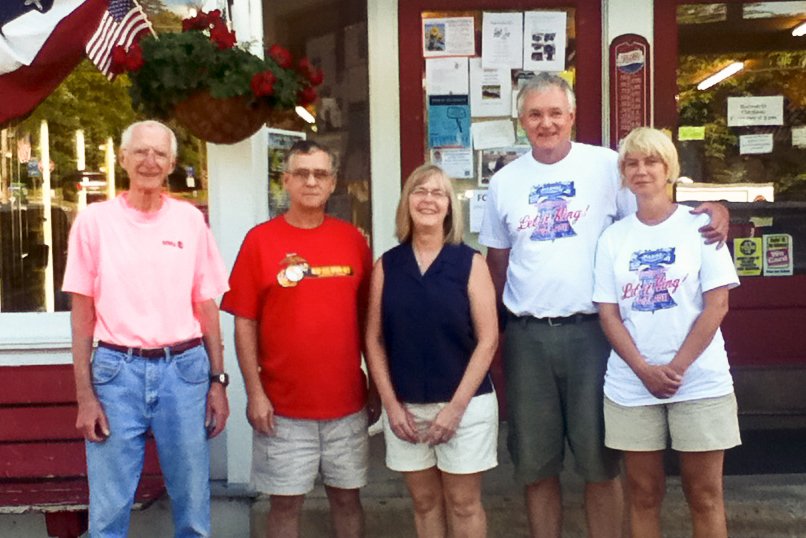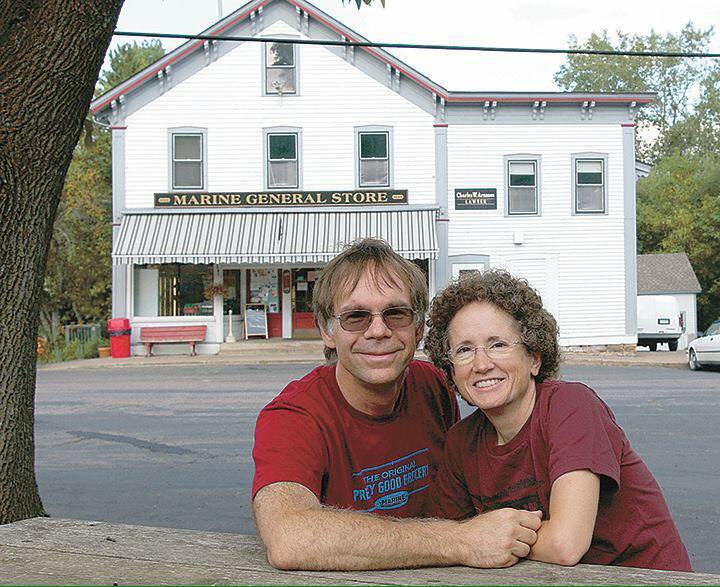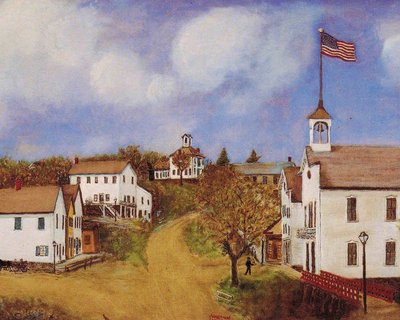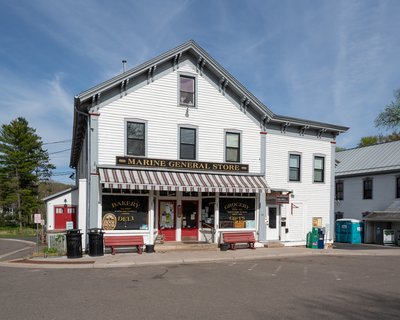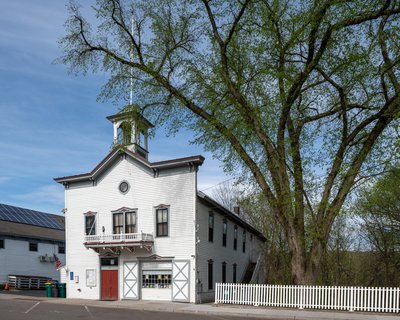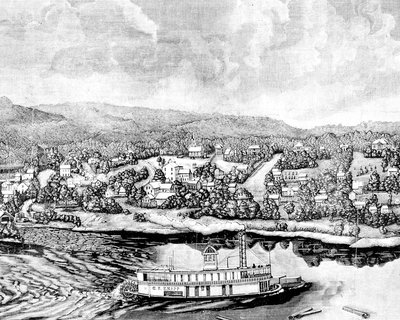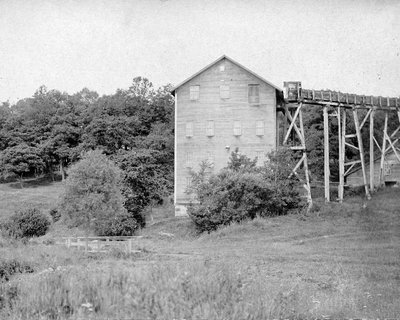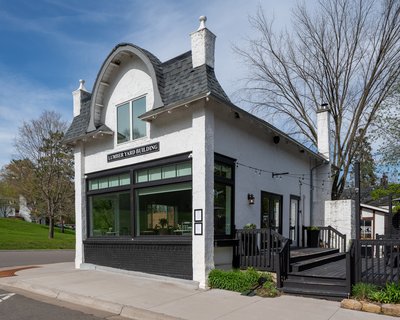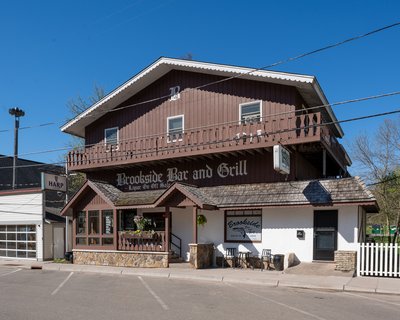Businesses on the Southeast Corner of Judd & Maple
It appears there has only been one building and business on this corner since the lumber company founded Marine Mills. Walker, Judd & Veazie built the largest and last lumber company store here in 1870, where it has continued as a general store with various owners until the present.
The Walker, Judd & Veazie General Store
Walker, Judd & Veazie’s general merchandise and lumbermen’s supply business boomed in the late 1860s, outgrowing their first store. In response, they built a new store on this location that was said to be “the best wooden store building in the state.” The two and half story building was assembled with the finest pine boards the sawmill could provide. Utilizing mortise and tenon construction, the building has remained largely unaltered.
When it opened, the newspapers were impressed:
In the cellar, which is the size of the whole building, 30 x 70, are appliances for pork-packing, lard-tying, and for putting up all kinds of supplies. This firm keeps a greater variety of goods than we have ever seen in a single establishment. [Stillwater Messenger, December 16, 1870]
In 1873, the Stillwater Messenger reported that the store was averaging $10,000 in sales each month, and the owners boasted they handled “as many or more Goods annually than any other firm in the country.”
The Last Lumber Company Store Owners
Marine Lumber Company
The fortunes of the Walker, Judd & Veazie lumber company reversed in the 1880s. They had to contend with log jams, low water, an economic depression and even a tornado that destroyed the sawmill in 1884. By 1885, they were forced to turn over the company to creditors, who reinstated its original name: Marine Lumber Company. Edwin St. John leased the general store from the company and opened it for business at the end of July 1885. During this period, Charles Strand helped run the store.
Anderson & O’Brien
Marine Lumber Company did not last long. They were bought out by the Stillwater lumber company Anderson & O’Brien in 1888. They modernized the sawmill and kept the store going with Charles Strand as a manager until 1895 when the lumber industry in Marine Mills finally ended. James O’Brien and his brother John closed the sawmill and sold it to James S. Burris who continued selling its property and machinery and eventually tore down the mill’s buildings. However, Burris kept the lumber company’s general store and put his son Charles H. Burris in charge of continuing its operation.
The Independent Store Owners
The C. H. Burris Store
After the demise of the lumber companies in Marine, their last general store continued to operate but now with independent owners. The first was Charles H. Burris who managed the store from 1895 to 1913. The Burris store competed with the Charles Strand store across Maple Street and the Henry Olsen store across Judd Street. The general store competition on the Judd & Maple intersection eased when Charles Strand closed his store on the NE corner and moved across the street into the Burris store, which he bought in 1914.
The Strand Store
Strand refurbished the aging Burris store and installed Pitner lighting fueled by pressurized gasoline. Newspapers said, “It looks like a city emporium.”
When Charles Strand died in 1927, the general store went to his son Roy Strand. His brother Wallace joined the firm in 1935.
When the general store was owned by the lumber company, it catered mostly to loggers, rivermen, and farmers. During Strand’s ownership, Marine became a popular summer retreat for Twin Citians, who needed their own variety of supplies.
In a newspaper interview, Roy Strand recalled:
We have to stock some things many a store wouldn’t bother with … I can remember the days when we regularly sold lots of kerosene and lumberjack boots and shoes. Practically all our dry goods sold by the yard – thousands of yards of dress goods a year plus all the trimmings … We still [in 1960] stock thread and buttons and some yard goods. We have hardware and a meat department and groceries. We have spare parts for lanterns the folks still use in summer cottages. We carry stock salt for cattle and oyster shells for chickens. We have toys and gift items … We still have some harness items left over from a complete line we carried years ago … I can remember selling brass-tipped shoes for children. We have replacement ax handles and automatic electrical appliances. [Minneapolis Sunday Tribune, January 3, 1960]
The Malmberg Store
Roy Strand sold his general store business to Carl A. Malmberg and his son Ralph Malmberg in 1962. Throughout its history, the general store has been famous for having everything you need. In the 1970s, when owned by Ralph Malmberg, the store was made famous by one-time Marine resident Garrison Keillor, creator of the public radio show, A Prairie Home Companion. On that program, the store was immortalized as “Ralph’s Pretty Good Grocery” with the slogan: "If you can't get it at Ralph's, you can probably get along without it.”
Over the years, the second-floor of the store has seen many uses and renters, including lodgers, two dentists, a millinery shop, a hairdresser, a candymaker, and an Episcopal church. Ralph and his wife Marion, who were enthusiastic cross-country skiers, helped make cross-country skiing a favorite sport in the region when they opened the Village Ski/Touring shop above the store for the 1970-71 winter season.
Ralph and Marion also started the store’s first bakery with Marion as the baker. Ever creative, the Malmbergs even started typing up their own “newspaper” about events in the area along with store promotions. This mimeographed Marine Messenger became the Country Messenger in 1986, which is a full-fledged local newspaper still published today.
The Marine General Store
Husband and wife Dan and Sue Pruden became owner-operators of the store when they purchased it from Malmberg in 1982. They named it Marine General Store. They expanded the bakery in the basement. They also renovated a former chicken coop behind the store and rented it to Doris Strand for her Village Scoop ice cream shop when she had to vacate its original location on the corner of Linden & Judd. Arlene and Bruce Gillett started a video rental shop above the store, and later, the Prudens brought that business downstairs into the general store, which continued to rent videos until 2015.
Husband and wife Andrew and Karen Kramer bought the store from the Prudens on September 12, 2005. The Kramers moved from Stillwater to Marine in 2007 to become full-time owner-operators.
The Kramers remodeled the deli and the bakery. They moved the loading dock to a small addition on the north side of the building and added solar panels on the south roof. After Doris Strand died, they took over and remodeled the Village Scoop, renaming it the General Scoop.
Husband and wife Gordon and Cheryl Arcand bought the Kramer’s business on July 14, 2015, and purchased the building on November 2, 2015. They are preserving Minnesota’s oldest operating general store and still selling “a little of everything.”
— Andrew Kramer and the Marine Historic Signage Committee
